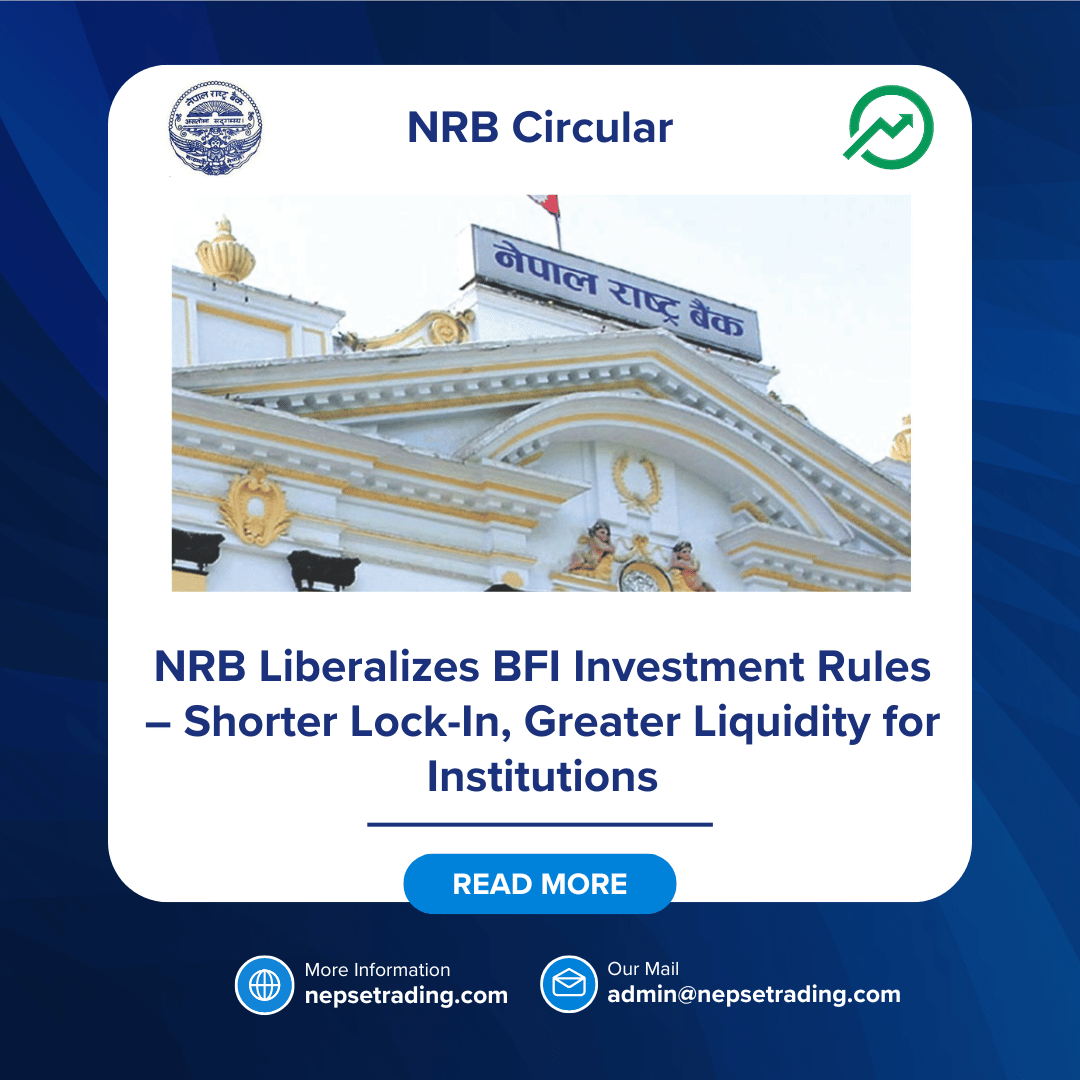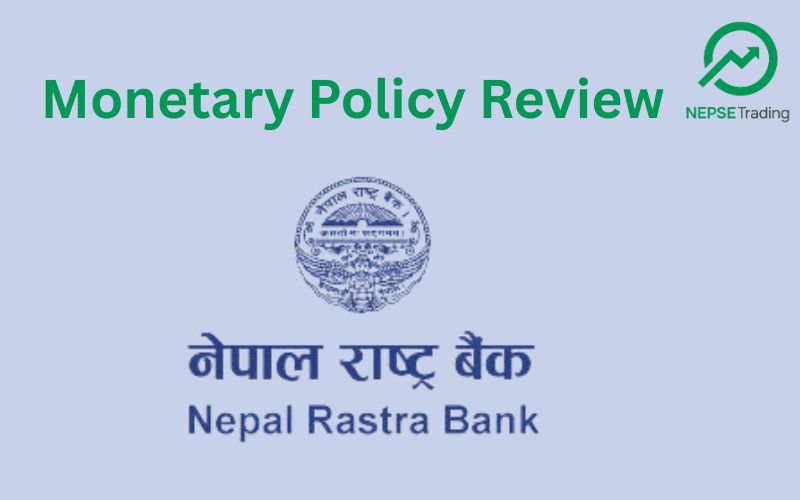By Sandeep Chaudhary
NRB Liberalizes BFI Investment Rules – Shorter Lock-In, Greater Liquidity for Institutions

In a landmark step toward financial liberalization, the Nepal Rastra Bank (NRB) has introduced sweeping changes in the Unified Directive 2082 (2025 AD) to make institutional investments more flexible, liquid, and market-responsive. The new directive — part of NRB’s broader Investment Reform Framework — has shortened the mandatory holding period, removed annual sale restrictions, and tightened transparency standards for unlisted investments. These reforms are aimed at balancing financial freedom with regulatory discipline in Nepal’s evolving banking and capital market landscape.
1. Shorter Lock-In Period: 6-Month Rule for Listed Investments
Under the revised provision, banks and financial institutions (BFIs) can now sell their listed shares and debentures after a minimum of six months — instead of the earlier one-year requirement.
“Banks and financial institutions may invest in shares and debentures of organized institutions listed in the stock exchange for a period of not less than six months. No short-term investment shall be made in such securities,” the directive clarifies.
This reform encourages dynamic portfolio management, allowing BFIs to respond faster to market conditions while maintaining stability. It is expected to increase liquidity and institutional participation in the secondary market, particularly in NEPSE (Nepal Stock Exchange), which has often faced sluggish trading volumes.
2. Removal of 20% Annual Disposal Limit
Previously, BFIs were restricted from selling more than 20% of their total investments per fiscal year, even after fulfilling the holding period. The new directive has completely abolished this limit, granting banks full flexibility to rebalance their portfolios based on financial strategy, capital adequacy, and market movements.
This change is anticipated to unlock institutional liquidity, facilitate faster capital recycling, and help BFIs maintain better risk and profit management in volatile markets.
3. Stricter Oversight for Unlisted Investments
While NRB has eased rules for listed securities, it has imposed greater accountability for unlisted investments.
If a BFI invests in shares or debentures of unlisted companies, such securities must be listed within three years of acquisition.
Failing to do so requires the institution to transfer an equivalent amount from retained earnings to an “Investment Adjustment Fund,” which remains frozen until listing occurs.
This measure ensures that unlisted investments remain transparent, traceable, and compliant, preventing risky or speculative exposures in private firms.
4. A Move Toward Liberalization and Market Depth
NRB’s latest directive reflects a clear shift toward financial liberalization — easing unnecessary restrictions while reinforcing sound governance. The central bank’s goal is to foster a more liquid, efficient, and transparent market ecosystem, where institutional investors play an active role in capital formation and long-term stability.
Key outcomes expected include:
Higher trading volumes and liquidity in NEPSE.
Greater institutional participation in market-based investments.
Improved risk management and capital efficiency among BFIs.
Stronger corporate governance and disclosure in investment practices.









